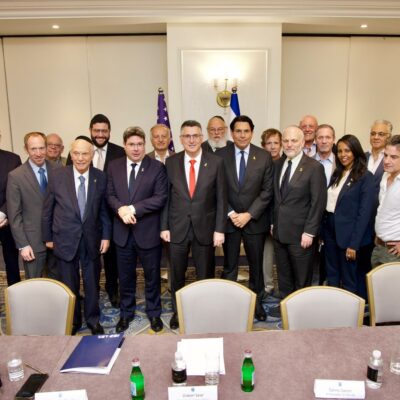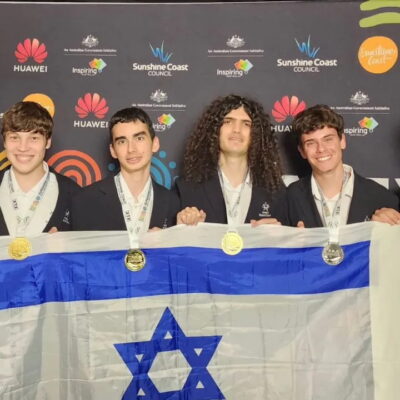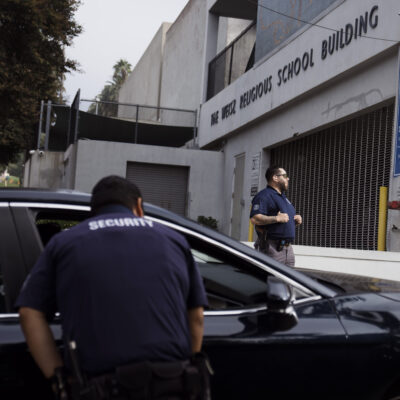Your Daily Phil: Maimonides Fund investment adds up as Israeli STEM teams breach global top 10
Good Monday morning.
In today’s edition of Your Daily Phil, we reflect on the haunting videos of two Israeli hostages that were published by Gaza terror groups over the weekend. We report on Maimonides Fund’s role in boosting Israel’s science and math Olympiad teams and on the tough questions posed to Gaza Humanitarian Foundation CEO Johnnie Moore at an event organized by Los Angeles’ Temple Sinai, and we interview Emmanuel Nahshon, a former Israeli diplomat spearheading the effort to combat academic boycotts of Israel. We feature an opinion piece by David Bernstein about avoiding a “training” mindset when it comes to antisemitism education, and one by Maayin Aviv encouraging knowledge-sharing and partnerships between nonprofits. Also in this issue: Sarah Awaidah, Renée Wizig-Barrios and Idan and Batia Ofer.
What We’re Watching
The 19th World Congress of Jewish Studies opens today at the Hebrew University of Jerusalem. The gathering was pushed by a group of activist members to include a discussion on Gaza.
What You Should Know
A QUICK WORD WITH EJP’S JUDAH ARI GROSS
Humans are visual creatures. It is why we have sayings like “Seeing is believing” and “A picture is worth a thousand words.” Striking images penetrate our hearts far more deeply and profoundly than intellectual understandings ever could.
This fact was on clear display this weekend as videos emerged of Israeli hostages Rom Braslavski, who is being held by the Palestinian Islamic Jihad, and Evyatar David, who is held captive by Hamas. In the photos, released one after the other, the two men appear severely emaciated. In Hamas’ video, David is seen digging what he fears to be his own grave in an underground tunnel in Gaza.
For nearly two years, these men and an unknown number of the other 48 hostages have survived unimaginable conditions. We know this and we have known this, and yet the images of their haggard, hollow-eyed appearances have rattled Israelis, Jews and their allies around the world, calling to mind images of the Holocaust and sparking fresh protests and calls for a hostage-release ceasefire agreement.
This was also the case earlier this year, during the previous ceasefire, when Eli Sharabi, Or Levy and Ohad Ben Ami were released from captivity — though even their gaunt forms appear healthy compared to the skeletal images of David and Braslavski.
Tal Shoham, a former hostage who was freed in the February agreement and who had been held alongside David, told Israel’s Channel 12 news that he was “shocked to the depths of my soul” to see his condition in the new footage, The Times of Israel reported. “He is broken mentally, emotionally. I can’t see now any of the joy of life that he had managed to retain in his eyes,” Shoham said. “Really, it’s a shell of the Evyatar I knew.”
This visual supremacy also explains the Jewish communal world’s consternation with the widespread use of a disingenuous photograph of a Gazan child with a muscular disorder that was used as a visual shorthand in media outlets around the world regarding the food shortages and starvation in the beleaguered enclave.
Both of these cases highlight the power of images but also their shortcomings. It should not require a cynical, orchestrated propaganda campaign by terrorist organizations to remind us of the plight of Israeli hostages, which is worsening by the minute. Media outlets should not rely on misleading images to describe what even Israel’s closest allies are calling a true humanitarian crisis.
Speaking at the Jewish Funders Network conference in March, Jon Polin and Rachel Goldberg-Polin, whose son Hersh was murdered in Hamas captivity last year, decried this visual focus as a form of dishonesty. “[When Sharabi, Levy and Ben Ami came out,] world leaders, including in Israel and the United States, were aghast. ‘Wow, look what’s happening to them.’ And we were saying, ‘That’s a lie. You have known this because we have told you about it. We have written about it.’”
CLIMBING THE CHARTS
Maimonides Fund investment adds up as Israeli Olympiad teams crack top 10 in math, chemistry
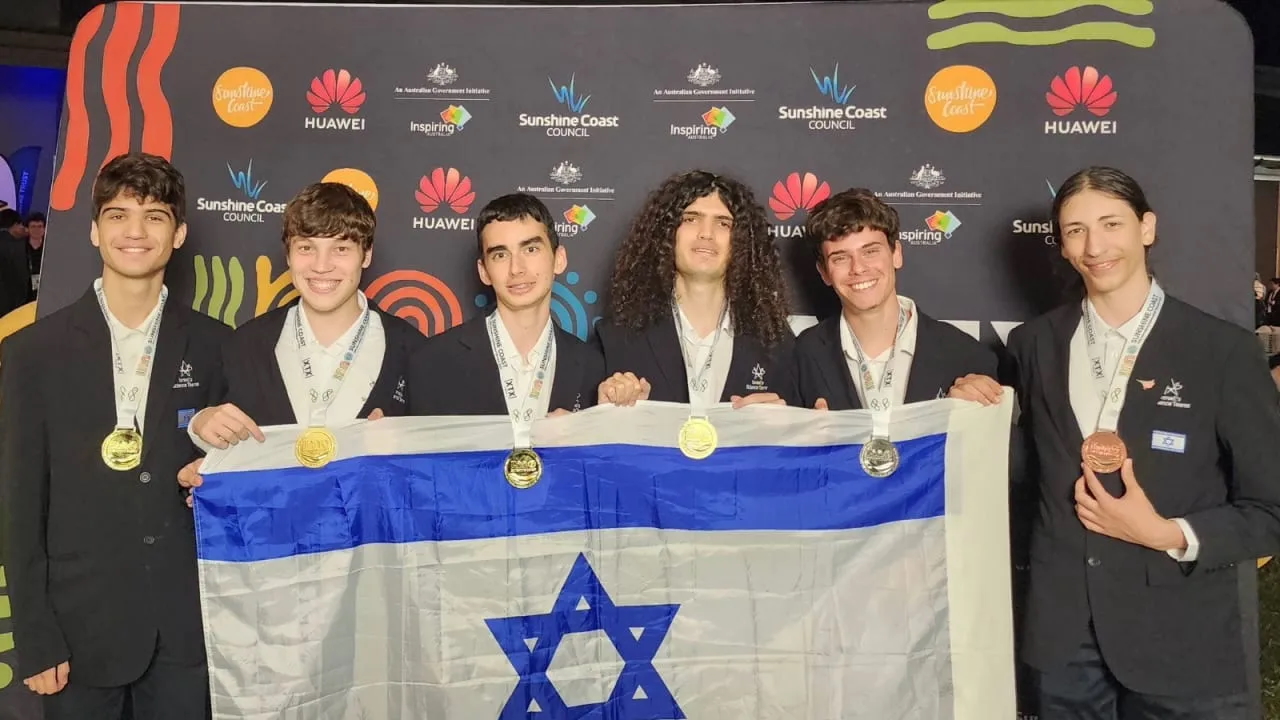
Eli Fried, director general of Maimonides Fund’s Future Scientists Center, which trains Israeli students for the International Olympiad, knew that his initial goal was a lofty one when he started six years ago: placing among the top 10 teams globally out of more than 100 countries in the disciplines of mathematics, chemistry, biology, physics and computer science. “That was all a bit of a fantasy a number of years ago,” Fried told Jake Gillis for eJewishPhilanthropy. “We weren’t sure how practical that was as a target.” But this year, the center proved it could do it, with the mathematics team placing sixth and the chemistry team finishing in 10th place, at the 2025 International Olympiad competition, which was held in Australia last month.
Good of the country: While the Olympiad program focuses on academic excellence, the center is also piloting booster programs in middle schools to encourage underrepresented populations, specifically Arab students and female students, to pursue advanced science studies. These initiatives aim to widen the pipeline of talent while maintaining the program’s rigorous standards. In addition to training for the Olympiad, the center also supports the “best of the best” students with scholarships to pursue STEM degrees at Israel’s top universities, reinforcing a national strategy to invest in human capital. “There are different educational opportunities for different kinds of gifted students,” Fried said. “And we believe that if they succeed, then Israel will end up better for their success.”
HARD QUESTIONS
Sinai Temple congregants grill GHF head Johnnie Moore over Gaza crisis
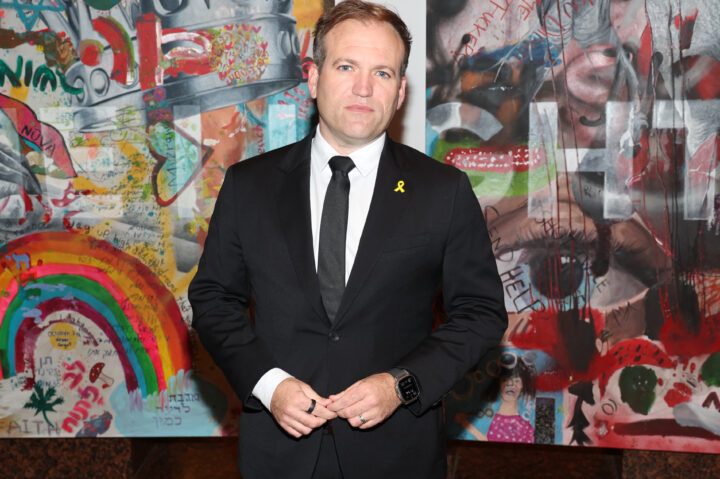
Faced with tough questions about the humanitarian crisis gripping Gaza from members of one of the country’s most prominent synagogues, Rev. Johnnie Moore, executive chairman of the Gaza Humanitarian Foundation, defended his organization while acknowledging that it is inexperienced and working to improve as Palestinians have been killed while trying to get food from its distribution sites. “We’ve done a lot in two months, but it’s a new operation. We’re not perfect, we’re learning every day, and we’re dedicated to being direct about what we think is working and what isn’t,” Moore told members of Sinai Temple, a large Conservative synagogue in Los Angeles, in a webinar hosted by its leader, Rabbi Erez Sherman, reports Jewish Insider’s Haley Cohen for eJewishPhilanthropy.
Real crisis, ‘disingenuous’ narrative: As hunger worsens in Gaza, American Jews — including those who are pro-Israel — are growing increasingly concerned with the humanitarian situation in the Palestinian enclave and placing some of the responsibility with GHF, which took over the aid distribution in May with backing from the United States and Israel. Moore pushed back against what he called “disingenuous” narratives about the organization’s work. “Hamas is losing control,” said Moore, a member of President Donald Trump’s evangelical advisory committee. The terrorist organization has made shutting down GHF a central demand in ceasefire negotiations with the U.S. and Israel. “We are meeting with Gazans every single day.” Moore also responded to skepticism about the humanitarian conditions in Gaza, insisting that the situation is indeed dire. Yet he also said that the issue is being used to unfairly criticize Israel and the United States. “The hunger crisis in Gaza is real, and on the same token, this crisis is being used in all kinds of different ways to advance other agendas,” he said.
Q&A
‘It’s the slow strangling of the Israeli academic world,’ former envoy warns amid EU sanctions debate
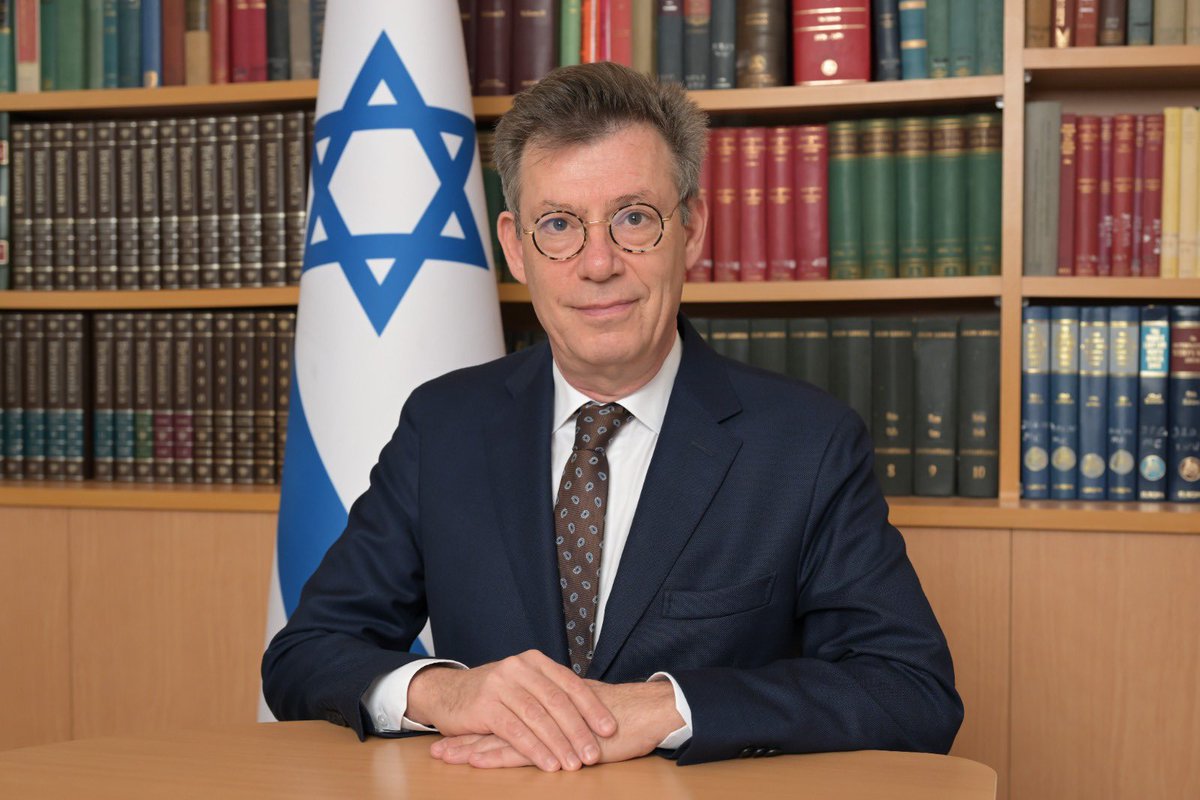
As several European countries moved to recognize a Palestinian state last week, the EU debated suspending Israel from Horizon Europe — its $109.2 billion science and innovation program — citing the humanitarian crisis in Gaza. The proposed partial suspension, which could cost Israeli startups over $11.4 million, failed to pass after Germany and Italy reportedly blocked the move, though talks will continue. Former Israeli diplomat Emmanuel Nahshon, now the coordinator for combatting academic boycotts on behalf of the Israeli Association of Universities warning, warned in an interview with Lahav Harkov for eJewishPhilanthropy’s sister publication Jewish Insider, that Israeli academia is facing mounting isolation and long-term damage in the wake of the Gaza war.
Snowball effect: “It’s a slippery slope. The more it happens, the more it is bound to happen. Universities copy one another. On top of that, we have the silent, covert boycott. It’s like Voldemort [from ‘Harry Potter’], no one is saying its name, but it is there and we feel it all the bloody time. Israeli lecturers are not invited to international events anymore; articles are rejected; Israelis are not invited to take part in science and research consortia, etc. If it continues for a year or two, we may face dire consequences,” Nahshon said. “It’s the slow strangling of the Israeli academic world. We cannot function without contact with the outside world. Israel is too small a country to be able to have its own, internal academic world. We need contact with …the Ivy League and Western European universities.”
Read the full interview here and sign up for Jewish Insider’s Daily Kickoff here.
BETTER SOLUTIONS
Don’t model antisemitism education on diversity training
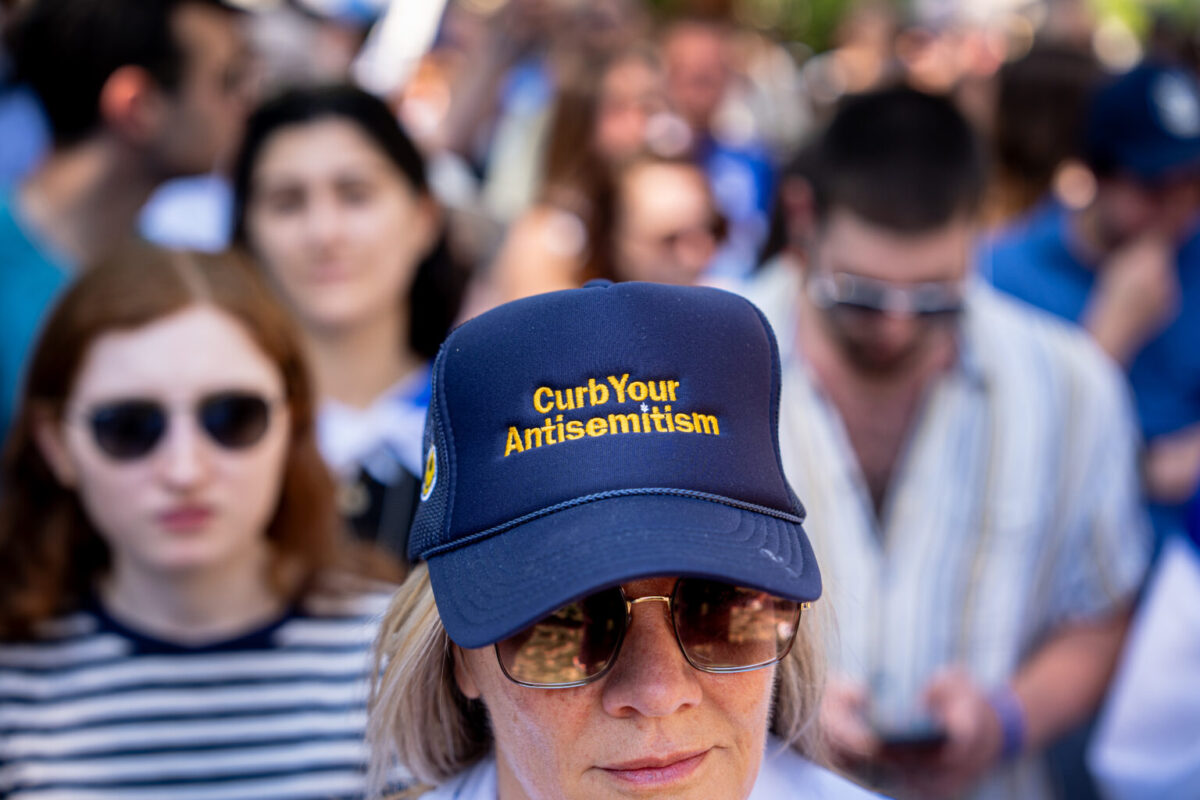
“You can train someone in Microsoft Excel. You can train someone in lab safety. You cannot train someone to adopt an argument or internalize a worldview,” writes David Bernstein, CEO of the North American Values Institute (NAVI), in an opinion piece for eJewishPhilanthropy. “That’s not training. That’s indoctrination. It often backfires, generating resistance rather than fostering understanding.”
An alternative: “Education, by contrast, engages people in open-ended exploration. It encourages them to encounter unfamiliar ideas, weigh evidence and arrive at their own conclusions. It empowers students to think — not just repeat what they’ve been told… So how should we teach students about antisemitism? We should expose them to varied expressions of antisemitism, from far-right conspiracy theories to far-left anti-Zionist rhetoric… We should present diverse theories about the roots of antisemitism, including religious, economic, nationalist and ideological explanations. Instead of presenting one root cause as dogma, we should let students grapple with competing interpretations, each with its strengths and blind spots. This will equip them to engage thoughtfully with contemporary antisemitism without falling into reductionism.”
FIRST PRINCIPLES
There’s no real competition in philanthropy, only collective impact

“There can never be too much good in the world, and doing good is healing. That’s what I’ve learned in the weeks and months since Oct. 7, 2023,” writes Maayan Aviv, CEO and executive director of American Friends of NATAL, in an opinion piece for eJewishPhilanthropy. “You’d think the immense need would naturally unite the philanthropic world — but sometimes, it doesn’t.”
Reject a scarcity mindset: “[W]hen everyone is transparent, more good can be done. Large and small organizations alike can better understand where to allocate resources to complement each other’s work instead of working against each other… At the end of the day, a little competition can be healthy and keeps us sharp, but being competitive doesn’t mean cutting anyone down. That’s not the goal. The goal is to do as much good as possible by respecting what others are doing, remaining transparent and building each other up.”
Worthy Reads
Not One More: In Haaretz, Tom Levinson reports on a protest effort by IDF veterans with post-traumatic stress disorder seeking action to stem the surge of suicides among their peers. “Only those who look closely near the city of Petah Tikva might catch a glimpse of black-painted wooden boxes – shaped like coffins – with a couple of tents set up behind them. Just beyond them stands the gate to a large government building: the headquarters of the Defense Ministry’s Rehabilitation Department… [To] the men in the tents – most of them officially recognized as suffering from post-traumatic stress disorder (PTSD) – this building defines their fate… Recently, they decided – spontaneously and without any prior planning – to gather there… What spurred them to act were recent media reports about a sharp rise in suicides among Israeli soldiers – the worst in a decade… ‘I take personally every soldier who dies by suicide after suffering from post-traumatic stress disorder. I feel his pain as if it were my own,’ says Meir Kadosh, 34, who lives with PTSD… ‘Right now, we have one goal only: to stop the next suicide. To shout at the state that it must help them, embrace them, and treat them before it’s too late.’” [Haaretz]
(Re)take the Lead: In Nonprofit Quarterly, Jean Westrick urges philanthropy to step up to ensure the development of ethical AI. “In 1956, the Rockefeller Foundation funded a five-week gathering of scientists and researchers called the Dartmouth Summer Research Project on Artificial Intelligence. Now recognized as the birthplace of the modern notion of ‘artificial intelligence,’ that single grant may be the most consequential in the development of artificial intelligence (AI). It’s been 70 years since, and AI is now here to stay. Philanthropy cannot afford to be a passive observer but rather has a critical role in shaping the future of AI. As governments around the globe struggle to keep pace with the advancements of AI, and create the necessary guardrails to address its risks, grantmakers have a unique obligation and a once-in-a-century opportunity to seize the moment and ensure AI serves the public good, advances equity, and strengthens the nonprofit sector rather than exacerbate existing disparities.” [NonprofitQuarterly]
Stopgap Measures: In Inside Philanthropy, Paul Karon observes that philanthropy is stepping in to ease the impact of U.S. cuts to global health funding, but it isn’t a perfect or long-term solution. “This past spring, for example, the U.S. government announced it would withdraw funding for Gavi, the Vaccine Alliance — a successful global public-private partnership that has provided vaccines to more than 1 billion children in developing countries, saving an estimated 19 million lives. The U.S. had been contributing 13% of Gavi’s budget, until the Trump administration earlier this year canceled $2.6 billion in funding intended to run through 2030. Following cancellation of the Gavi support, the Gates Foundation last month announced a new commitment of $1.6 billion over five years to maintain Gavi’s operations, re-upping a previous commitment… [P]rivate giving can help and can evolve to better meet global needs as U.S. funding pulls back, but, still, we shouldn’t expect it to replace the entirety of U.S. federal funding. Ultimately, what philanthropy has done, and can continue to do, is to move quickly, take risks and drive innovation.” [InsidePhilanthropy]
Word on the Street
Middle East envoy Steve Witkoff told hostage families in Tel Aviv on Saturday that the U.S. is now aiming to reach a comprehensive ceasefire and hostage-release deal with Hamas, including ending the war and returning all the remaining hostages, rather than the incremental deals previously attempted…
Over 600 former Israeli security officials — including former Mossad chief Tamir Pardo and former Shin Bet chief Ami Ayalon — who make up the Commanders for Israel’s Security group sent a letter to President Donald Trump on Sunday asking him to press Israeli Prime Minister Benjamin Netanyahu to end the war in Gaza…
The American Jewish Committee donated $25,000 to help repair the Holy Family Church, the only Catholic church in Gaza, which was damaged by errant Israeli munitions last month, eJewishPhilanthropy’s Nira Dayanim reports…
Fox News profiles Sarah Awaidah, a 30-year-old East Jerusalem woman who built an aid system that bypassed Hamas and brought food and supplies to some 100,000 Gazans and who now faces death threats from the terrorist organization…
Fox also spotlights efforts by the International Fellowship of Christians and Jews to bring humanitarian aid to Druze and Christians in southern Syria…
A Russian drone strike damaged the historic Peresyp Synagogue in Odesa, Ukraine, last night…
Fierté Montréal, the Canadian city’s Pride festival, barred two Jewish organizations from participating in its event next Sunday — Ga’ava, the country’s oldest and largest Jewish LGBTQ organization, and the Centre for Israel and Jewish Affairs, the advocacy arm of the Jewish Federations of Canada — over the war in Gaza…
The Oregon Jewish Museum and Center for Holocaust Education in Portland was vandalized last week, with several swastikas painted on the building…
Paul Singer and Miriam Adelson, two Jewish donors with deep ties to President Donald Trump, appear to be the main contributors to a super PAC aimed at ousting Rep. Thomas Massie (R-KY)…
Oxford University has launched a first-of-its-kind scholarship for Jewish undergraduates or Israeli undergraduates of any or no faith…
The Times of Israel highlights the recently demobilized Israeli soldiers who are moving to Kibbutz Manara on the border with Lebanon, one of the communities that was hardest hit by the war with Hezbollah…
Semafor obtained internal messages from The New York Times illuminating the outlet’s debate over the cover photo for a story on malnutrition in Gaza, which ultimately led to the newspaper clarifying that the child pictured had previous health conditions…
Ami Eden, CEO of JTA’s parent company 70 Faces Media, identifies himself as the former student-body president at then-Akiba Hebrew Academy outside of Philadelphia who once bested Josh Shapiro in what the Pennsylvania governor has described, most recently in an interview with Stephen Colbert, as the only campaign defeat of his life…
The New York Times spotlights the outlet Campus Reform and its editor-in-chief, Zachary Marschall, whose longtime coverage of leftist bias on college campuses has resulted in several schools coming under investigation from the federal government…
Richard Mark Alter, a prominent member of Baltimore’s Jewish community, died July 17 at 81…
William “Bill” Jay Hoffman, a professional makeup artist who — together with his wife, folk singer Eleanor Walden — used music and the arts to raise funds for civil rights causes, died July 6 in Rockville, Md., at 87…
Major Gifts
Real estate investor and philanthropist Howard Silver and his wife, Lisa Johnson, made a $1 million gift to the Ottawa Hospital’s Campaign to Create Tomorrow…
A grant for an undisclosed amount from the Blank Family Foundation and the Atlanta Falcons — the NFL team owned by billionaire Arthur Blank — to HBCUs Clark Atlanta University and Morehouse College will provide high-tech football helmets designed to protect athletes from brain injuries…
Transitions
Steven Rakitt is stepping down as president of the Genesis Prize Foundation after eight years; he will now serve as senior advisor to Genesis Prize co-founders Stan Polovets and Natan Sharansky…
Renée Wizig-Barrios, CEO of Jewish Federation of Greater Houston, has been appointed co-chair of the Jewish Federations of North America’s Rebuild Israel: Mental Health Working Group…
Ian Michaelchuck was named the next new director of the Russ Berrie Institute for Professional Sales at William Paterson University of New Jersey…
Pic of the Day
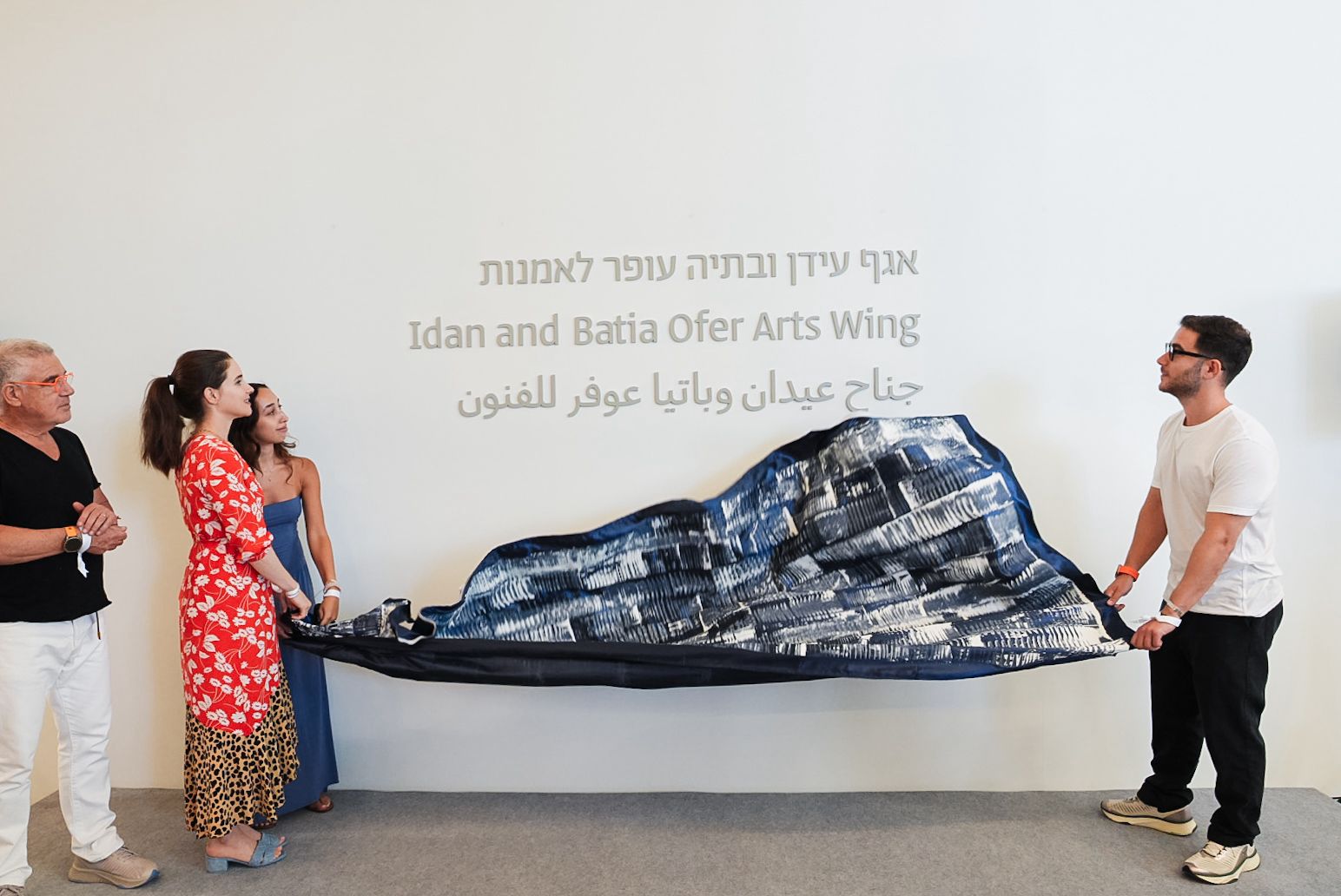
Students at Jerusalem’s Bezalel Academy of Arts and Design unveil the Idan and Batia Ofer Arts Wing at the school last Wednesday as billionaire businessman and philanthropist Idan Ofer (in orange glasses) looks on.
The Ofers, some of Israel’s most prominent art patrons, also supported the creation of an “international hub” at the school, which was officially launched at the unveiling. The hub will work to connect the Israeli art academy with foreign institutions and artists as the country faces growing academic and cultural boycotts. During the event, Batia Ofer was also presented with the school’s “Yakir Bezalal Award,” alongside Ohad Naharin, Said Abu Shakra and Maira Kalman.
“The opening of the Art Wing and International Hub at Bezalel is a significant moment for Idan and me, and expresses an aspiration to help establish an open, lively, and inviting home for creation, research, and artistic and cultural dialogue. I believe in the power of art to bring people closer together, to reflect complex realities, and sometimes also to contribute to processes of social change,” Batia Ofer said at the event.
Birthdays

A former student at the Donna Klein Jewish Academy in Boca Raton, Fla., he is a placekicker for the NFL’s San Francisco 49ers, Greg Joseph…
Professor emerita of American history at Yeshiva University and Stern College, she is an expert on the history of McCarthyism, Ellen Wolf Schrecker… Talmudic scholar and a leader of New York’s Sephardic Jewish community, Rabbi Eliyahu Ben Haim… President at Salco Mechanical, Michael Salzberg… Rabbi of Centro Israelita de Bogotá and chief rabbi of Colombia, Alfredo Goldschmidt… Immediate past board chair of the Jewish Funders Network, Marcia Riklis… Frederic Lewis Bloch… Former Ashkenazi chief rabbi of Israel, he was convicted of bribery and fraud, Rabbi Yona Metzger… Retired professor in Memphis, Sheldon Dan… Longtime member of the Knesset for Likud, including multiple ministerial positions, Silvan Shalom… Executive producer of “Live with Kelly and Mark,” Michael Gelman… Administrative manager at Edelman, Helen Lapkovsky… Global editorial director for PwC and editor-in-chief of PwC’s management magazine strategy+business, Daniel Gross… Editor-in-chief of “Cuepoint” at Medium, he is known as Shecky Green, Jonathan Miles Shecter… Emmy Award-winning broadcast meteorologist at WJLA-TV in Washington, Steven Rudin… Washington director of Bend the Arc Jewish Action, Rabbi Jason Kimelman-Block… Director-general of the United Nations Educational, Scientific and Cultural Organization (UNESCO), Audrey Azoulay… Senior editor at Politico, he writes Politico‘s “Capital City” column, Michael Schaffer… Chair of the Arizona Democratic Party from 2011 through 2012, he is a former White House speechwriter, Andrei Cherny… Head of PR for Unit 42 at Palo Alto Networks, Caren Beth Auchman… CEO of Something Major, a leadership coaching and advisory firm, Randi Braun… Director of corporate growth strategy in the geostrategic business group at EY-Parthenon, Ben-Ari Boukai… CRO and co-founder at Riverside.fm, Jonathan Keyson… TikToker, comedian and influencer, Sabrina Plon Brier… Natalie Roberts… Evelyn Murphy…
BELATED BIRTHDAY: Representative of the World Zionist Organization Executive in North America, Michal Slawny Cababia (was Thursday)…



